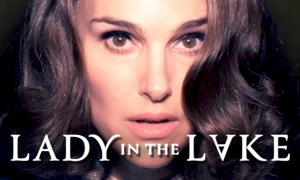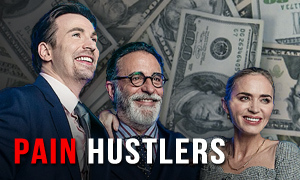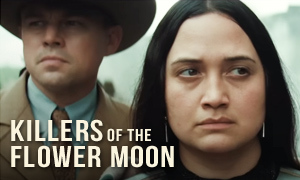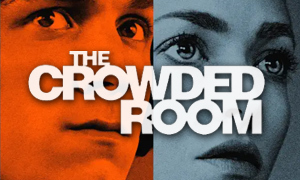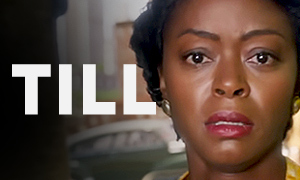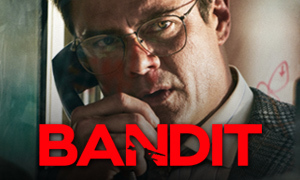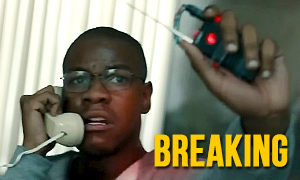The Dropout: History vs. Hollywood
Amanda Seyfried
Born: December 3, 1985
Birthplace:
Allentown, Pennsylvania, USA
Elizabeth Holmes
Born: February 3, 1984
Birthplace: Washington, D.C., USA
Naveen Andrews
Born: January 17, 1969
Birthplace:
London, England, UK
Sunny Balwani
Born: June 13, 1965
Birthplace: Sindh, India
Bio: Theranos COO & Elizabeth Holmes' Boyfriend
Stephen Fry
Born: August 24, 1957
Birthplace:
Hampstead, London, England, UK
Ian Gibbons
Born: March 6, 1946
Birthplace: England, UK
Death: May 23, 2013, Portola Valley, California (suicide by acetaminophen overdose)
Bio: Theranos Biochemist & Chief Scientist
Sam Waterston
Born: November 15, 1940
Birthplace:
Cambridge, Massachusetts, USA
George Shultz
Born: December 13, 1920
Birthplace: New York City, New York, USA
Death: February 6, 2021, Stanford, California, USA
Bio: Former Secretary of State / Theranos Board Member
Anne Archer
Born: August 24, 1947
Birthplace:
Los Angeles, California, USA
Charlotte Shultz
Born: September 26, 1933
Birthplace: Borger, Texas, USA
Death: December 3, 2021, Stanford, California, USA (cancer)
Bio: George Shultz's Wife
Dylan Minnette
Born: December 29, 1996
Birthplace:
Evansville, Indiana, USA
Tyler Shultz
Born: 1992
Birthplace: San Francisco, California, USA
Bio: Theranos Whistleblower & George Shultz's Grandson
Camryn Mi-young Kim
Erika Cheung
Birthplace: Los Angeles, California, USA
Bio: Theranos Whistleblower / Former Employee
William H. Macy
Born: March 13, 1950
Birthplace:
Miami, Florida, USA
Richard Fuisz
Born: December 12, 1939
Birthplace: Bethlehem, Pennsylvania, USA
Bio: Inventor Sued by Holmes for Allegedly Misappropriating a Theranos Patent
Laurie Metcalf
Born: June 16, 1955
Birthplace:
Carbondale, Illinois, USA
Phyllis Gardner
Born: July 7, 1950
Bio: Stanford Professor & Early Theranos Skeptic
Utkarsh Ambudkar
Born: December 8, 1983
Birthplace:
Baltimore, Maryland, USA
Rakesh Madhava
Bio: One of the First Theranos Employees
Alan Ruck
Born: July 1, 1956
Birthplace:
Cleveland, Ohio, USA
Jay Rosan
Born: February 25, 1945
Birthplace: Pennsylvania, USA
Bio: Vice President of Health Innovation at Walgreens
Bill Irwin
Born: April 11, 1950
Birthplace:
Santa Monica, California, USA
Channing Robertson
Born: November 26, 1943
Birthplace: Los Angeles, California, USA
Bio: Stanford Professor and First Board Member of Theranos
Michael Ironside
Born: February 12, 1950
Birthplace:
Toronto, Ontario, Canada
Don Lucas
Born: March 18, 1930
Death: December 27, 2019
Bio: Theranos Investor
Nicky Endres
Born: September 30, 1982
Birthplace:
Seoul, South Korea
Ana Arriola
Birthplace: Los Angeles, California, USA
Bio: Theranos Vice President & Chief Design Architect
Kurtwood Smith
Born: July 3, 1943
Birthplace:
New Lisbon, Wisconsin, USA
David Boies
Born: March 11, 1941
Birthplace: Sycamore, Illinois, USA
Bio: Theranos Lawyer
Ebon Moss-Bachrach
Born: March 19, 1977
Birthplace:
New York City, New York, USA
John Carreyrou
Born: September 17, 1972
Birthplace: New York, USA
Bio: Journalist at The Wall Street Journal who Exposed Theranos
Is Elizabeth Holmes' father a former Enron executive?
Yes. The Dropout true story confirms that like his daughter, Elizabeth Holmes' father also tried to peddle a product that never got off the ground, Enron's Clean Energy Solutions Group (CES). Under Christian "Chris" Holmes' leadership as Vice President, the environmental services product at Enron was set up to quantify and certify emissions reductions. Companies could hire Enron to carry out these tasks. The only problem was that it was a misfire out of the gate.
As with his daughter's vision, what looked good in theory was in reality a failure. For one, there was plenty of pushback against CO2 regulation in the U.S., and the Kyoto Protocol never made it to the Senate for ratification. Companies also found it more beneficial to their bottom lines to keep environmental activities, including CO2 regulation, in-house.
The environmental outsourcing initiative at Enron was disbanded in 1998. The company went under in 2001 after an accounting scandal cost shareholders billions. Elizabeth Holmes' father, Chris, went on to work for governmental agencies, including the USAID. -Enron Ascending: The Forgotten Years
Was Elizabeth Holmes raped by a fellow student at Stanford?
Holmes spoke emotionally about the rape during her 2021 trial. She said that it happened in 2003, the same year she started Theranos. NPR obtained a police document that verifies she reported the assault and that police were dispatched to the campus. "I was raped when I was at Stanford," Holmes testified. She explained that the assault had resulted in her putting everything she had into Theranos. "I was questioning what — how I was going to be able to process that experience and what I wanted to do with my life. And I decided that I was going to build a life by building this company."
Did Elizabeth Holmes drop out of Stanford?
Yes. Holmes began attending Stanford University in 2002 with a focus on chemical engineering. In 2003 at age 19, she started the company that would eventually become Theranos. She dropped out of Stanford in 2004 to focus full-time on building the company. The Dropout fact-check confirms that, like in the Hulu miniseries, she used the savings her parents had allotted for her education to help fund the company, which was originally called Real-Time Cures.
Initially, she secured a patent for a drug-delivery patch that could adjust dosage based on variables in a patient's blood. That idea evolved into work on the Edison machine, a device that could perform rapid blood tests with only a fingerprick-size sample of blood.
What does the name Theranos mean?
While investigating how true is The Dropout on Hulu, we learned that the company name Theranos comes from a merger of the words "therapy" and "diagnosis." The Theranos website can still be viewed at the Wayback Machine.
What technology did Elizabeth Holmes claim Theranos had created?
Holmes claimed Theranos had invented a small microwave-sized machine, dubbed the Edison (pictured below), that could perform multiple blood tests with a single drop of blood. No longer would blood taken in a doctor's office need to be sent out to a laboratory to be analyzed. Instead of waiting 24 hours or more for results, doctors' offices could have blood test results rapidly and the cost would be a fraction of traditional lab work. Theranos' mission was for everyone to receive monthly blood tests via its Edison machines, which would help to catch diseases like cancer at their earliest. The technology was poised to revolutionize the field of medicine. The only problem was that their Edison blood-testing machines didn't work.
Is The Dropout based on the HBO documentary The Inventor: Out for Blood in Silicon Valley?
No. The Dropout miniseries on Hulu is based on Rebecca Jarvis' 2019 ABC Audio podcast of the same name. Jarvis, who hosted the podcast, also served as an executive producer on the Hulu series. By contrast, the HBO Documentary, titled The Inventor: Out for Blood in Silicon Valley, is a companion piece to John Carreyrou's nonfiction book Bad Blood: Secrets and Lies in a Silicon Valley Startup.
Did Elizabeth Holmes idolize Steve Jobs?
Yes. In the Hulu miniseries, Holmes (Amanda Seyfried) has a Steve Jobs poster on her wall as a teen. While researching The Dropout fact vs. fiction, we learned that it's also no accident that she chose to mimic Steve Jobs' style by wearing black turtlenecks, something she claims to have started doing at the age of five. The real Elizabeth Holmes' hero was indeed Jobs, and it's not hard to see that she was trying to position herself as an equally formidable visionary. She even referred to her Edison blood-testing machine as "the iPod of healthcare" and recruited Steve Jobs' former right-hand man Avie Tevanian. The problem was that Holmes seemed to focus more on embracing the attention that came with being seen as a visionary instead of making a blood-testing machine that actually worked.
Does Amanda Seyfried accurately depict Elizabeth Holmes' voice?
Yes, at least far more than Julia Garner did while trying to mimic Anna Delvey's voice in the Netflix miniseries Inventing Anna. Garner embellished Delvey's accent too much, and Ozark fans were quick to point out the southern twang Garner uses for her character on that show coming through at times. As a result, it always felt like Garner was acting. By contrast, Amanda Seyfried nails the improbably deep register and halting cadence of Elizabeth Holmes' voice, in part by treating it as an affectation, or a way for Holmes' herself to dip into a more masculine character when she wants to seem more formidable, which seems accurate given what we know about the real Elizabeth Holmes and her aversion to confrontation.
Stanford professor Phyllis Gardner (played by Laurie Metcalf) says that she was shocked when she heard Elizabeth Holmes' deep voice, because the Theranos founder didn't have the deep voice years before when Gardner knew her. This helped to prove what some had come to suspect, Holmes' voice was part of an act.
Are all of The Dropout miniseries characters based on real people?
Unlike Netflix's fraudster miniseries Inventing Anna, none of the names in Hulu's The Dropout have been changed to protect the innocent or guilty. There are also very few, if any, composite characters. Big names like tech mogul Larry Ellison, former Secretary of State George Shultz, and even President Joe Biden appear as characters who sung Theranos praises (Seyfried is digitally inserted into footage of the real Joe Biden with Elizabeth Holmes). Pictured below is a tweet from Theranos of Joe Biden's 2015 visit when he was Vice President.
Hulu's The Dropout miniseries is more historically accurate than most similar biopics. Part of the reason is undoubtedly due to the fact that many viewers are familiar with HBO's popular The Inventor Elizabeth Holmes documentary or the Rebecca Jarvis podcast that inspired the Hulu miniseries. For the most part, the show also unfolds chronologically and doesn't feel the need to embrace the overused parlor trick of jumping around in its main character's timeline. The natural flow also allows for an easier comparison of The Dropout to the true story of Elizabeth Holmes.
Did Theranos partner with Walgreens?
Yes. The Dropout fact-check reveals that the 2013 agreement spearheaded by Walgreens Vice President of Health Innovation Jay Rosan (portrayed by Alan Ruck in the Hulu miniseries) led to more than 40 Theranos testing centers being situated inside Walgreens drugstores. Promoted as wellness centers, the facilities promised in-store blood testing. However, the blood samples were still being sent out to the labs at Theranos for testing, often yielding inaccurate results.
Theranos partnered with other companies as well, including striking a 2012 deal with the Safeway supermarket chain to retrofit 800 stores with in-store blood-testing clinics using Theranos' Edison machines. Safeway planned to invest $350 million into the project. The deal fell through in 2015 after Theranos missed a number of deadlines and a trial clinic set up at Safeway's corporate offices yielded questionable results.
Partners acquired in 2015 included the Cleveland Clinic in March and Pennsylvania health insurance companies Capital BlueCross and AmeriHealth Caritas in July.
Was the board of Theranos made up of mostly government officials?
Yes. The board was comprised of a retired U.S. Navy admiral, a U.S. Marine Corps general, three former U.S. cabinet secretaries, two former senators, and others. Out of all the board members, very few had the knowledge to thoroughly understand the technical aspects of Theranos' blood-testing machine. Epidemiologist William Foege, the former director of the CDC, and former senator Bill Frist, a surgeon, were the two board members who seemed most likely to understand the technology. The fact that the board wasn't made up of more people with medical expertise was unusual, and the fact that until 2016 there wasn't another scientific advisory board set up to offset the existing board was concerning.
How much was Theranos worth at its peak valuation?
Elizabeth Holmes' ability to convince venture capitalists and private investors to back her company allowed her to raise over $945 million (CNBC). At its peak in 2013 and 2014, Theranos was valued at approximately $10 billion.
Were Elizabeth Holmes and Theranos exposed in a Wall Street Journal article?
Yes. As seen in Hulu's The Dropout miniseries, the true story corroborates that The Wall Street Journal's John Carreyrou questioned the validity of Theranos' blood-testing technology in an October 16, 2015 article titled "Hot Startup Theranos Has Struggled With Its Blood-Test Technology." The article revealed that Theranos' Edison blood-testing machines were only being used to analyze a small fraction of blood samples. The rest were being analyzed with existing laboratory technology. Some employees had doubts with regard to the accuracy of the machines. Carreyrou's article also asserted that the data the company gave to regulators was cherrypicked.
In an attempt to save face, Theranos hit back at The Wall Street Journal story, calling it "factually and scientifically erroneous" and criticized Carreyrou's sources, stating that they were "inexperienced and disgruntled former employees and industry incumbents."
Was Elizabeth Holmes romantically involved with Sunny Balwani?
Yes. The HBO Theranos documentary and the Rebecca Jarvis podcast both emphasize the role of Elizabeth Holmes' boyfriend at the time, Sunny Balwani, who she first got to know while on a trip to China for a Mandarin immersion program. As in the series, she eventually appointed Balwani COO of Theranos to help fend off a challenge by her board members. She later claimed that Balwani was sexually abusive. Sunny Balwani is portrayed by Lost alum Naveen Andrews, who previously starred in the 2013 biopic Diana opposite Naomi Watts.
Who were some of Elizabeth Holmes' most influential and famous supporters?
The Dropout true story verifies that Holmes and her company Theranos had the support of many influential people. In addition to those already mentioned, she had garnered the praise of General James Mattis, former Secretary of State Henry Kissinger, former Secretary of State George Shultz, and future Secretary of Education Betsy DeVos. Shultz garnered criticism for continuing to support Theranos as a board member despite significant evidence the company had engaged in fraud. His grandson, Tyler Shultz, a former Theranos employee, had tried to warn him.
Was Elizabeth Holmes praised by Bill Clinton and Joe Biden?
Yes. In fact, the miniseries uses real footage and digitally inserts Amanda Seyfried into video of the real Elizabeth Holmes being praised by Joe Biden and Bill Clinton.
Did Elizabeth Holmes and her boyfriend Sunny Balwani try to silence whistleblowers?
Yes. This is chronicled in the Rebecca Jarvis podcast and HBO's The Inventor Elizabeth Holmes documentary. They tried to threaten into silence Tyler Shultz, the grandson of Theranos board member and former Secretary of State George Shultz, after he began to suspect Holmes was a fraud. They also targeted Theranos biochemist Ian Gibbons and new-hire Erika Cheung, who could see that the Edison blood-testing machine didn't work and that Holmes and Balwani were trying to sell a lie.
Did Theranos biochemist Ian Gibbons commit suicide the night before he was supposed to testify in a lawsuit against the company?
Yes. In researching how true is The Dropout, we discovered that in 2013, whistleblower Ian Gibbons attempted to overdose on Tylenol (acetaminophen) the night before he was set to testify. He died several days later of liver failure as a result of the overdose. He had also been recently diagnosed with cancer. Gibbon's widow, Rochelle, told CBS News that early into his work at Theranos, her husband knew there were problems. "He started talking to me about all these investments, all the money that the company is bringing in. And he told me that he couldn't imagine why people were giving the company any money because there was no invention, there was nothing there."
How much was Elizabeth Holmes worth before and after her secrets were exposed?
While the promise of Theranos was still alive in 2015, Forbes had declared Holmes, then 31, America's youngest and wealthiest self-made female billionaire with a net worth of $4.5 billion. The previous year Fortune had featured her on their June 30, 2014 cover next to the headline, "This CEO is Out for Blood." By 2016, Forbes revised her net worth to $0, and Fortune featured Holmes in its article "The World's 19 Most Disappointing Leaders."
What was Elizabeth Holmes' charged with?
With the last remaining vestiges of her company having been dissolved in 2018, Elizabeth Holmes and former boyfriend and Theranos company president Ramesh "Sunny" Balwani were charged with fraud by the Securities and Exchange Commission (SEC) in the case United States v. Elizabeth A. Holmes, et al. They faced 11 counts of fraud, including nine counts of wire fraud in addition to two counts of conspiracy to commit wire fraud.
What was Elizabeth Holmes' punishment?
After Elizabeth Holmes' trial was delayed a year due to the COVID-19 pandemic and her pregnancy, it finally commenced on August 31, 2021. On January 3, 2022, Holmes was found guilty on four of 11 charges, including conspiracy to defraud investors. Elizabeth Holmes' punishment has yet to be handed down. She is currently free on a $500,000 bond until her sentencing, which is set for September 12, 2022. She could face a maximum of 20 years in prison, in addition to millions in fines and restitution. However, she is expected to be sentenced to a lesser punishment.
Did Elizabeth Holmes pin most of Theranos' worst deeds on her former boyfriend, Sunny Balwani?
Yes. At her trial in 2021, Holmes tried to pin Theranos' most malevolent acts on Sunny Balwani, her former boyfriend and the COO of Theranos. Hulu's The Dropout miniseries treats them as partners in crime, which seems to be more in line with the true story.
Where is Elizabeth Holmes today?
At the time of the release of Hulu's The Dropout miniseries, Elizabeth Holmes, 38, was living on a $135 million Silicon Valley estate with her husband, Billy Evans, heir to Evans Hotels, a family-owned group of San Diego hotels. She had begun dating Evans following the collapse of her company Theranos. On July 10, 2021, the pair welcomed their first child, a boy named William Holmes Evans. She is currently awaiting sentencing, which is set for September 12, 2022. She is expected to receive at least several years in prison.
"To get pregnant when you're undergoing a trial is the height of irresponsibility in my mind," says Phyllis Gardner (portrayed by Laurie Metcalf), who knew Holmes at Stanford. "What about the baby?!" Gardner says she believes that the pregnancy was planned. "It's the best way to garner sympathy, to try to keep herself out of prison." -60 Minutes Australia
Was Kate McKinnon originally supposed to play Elizabeth Holmes in The Dropout?
Yes. Actress/comedian Kate McKinnon was originally supposed to portray Elizabeth Holmes in Hulu's The Dropout miniseries. So, why did Kate McKinnon leave The Dropout? McKinnon left the project in February 2021 due to scheduling issues, opting to instead play animal rights activist Carole Baskin in Peacock's limited series Joe vs. Carole, which premiered the same day as The Dropout, March 3, 2022. It would be hard to imagine McKinnon portraying Holmes without it looking like an SNL skit at times, especially when depicting Holmes at 18.
Is Elizabeth Holmes allowed to start another company?
Yes, at least as of 2028 she can. In 2018, she accepted a ten-year ban from serving as a director or officer of a public company. This was part of an initial settlement agreement she reached with the U.S. Securities and Exchange Commission (SEC). This was prior to her trial and subsequent convictions. Foreseeably, she could operate a smaller private company during the ten-year ban, though it might be difficult for her to secure investors.
Link-to-Learn More:
